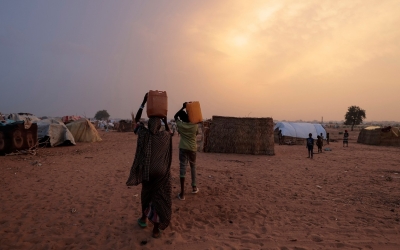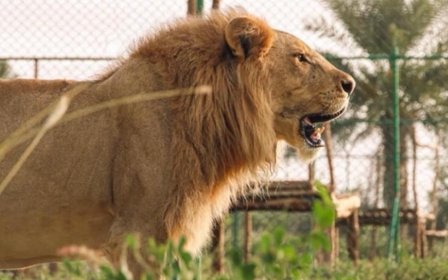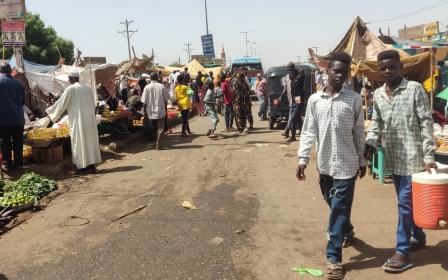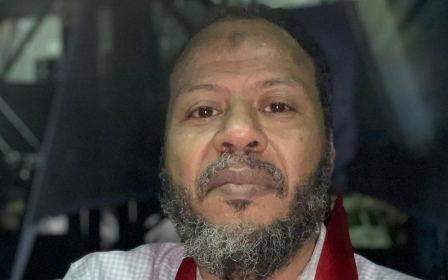Sudan: RSF chief Hemeti appears in public for first time in months
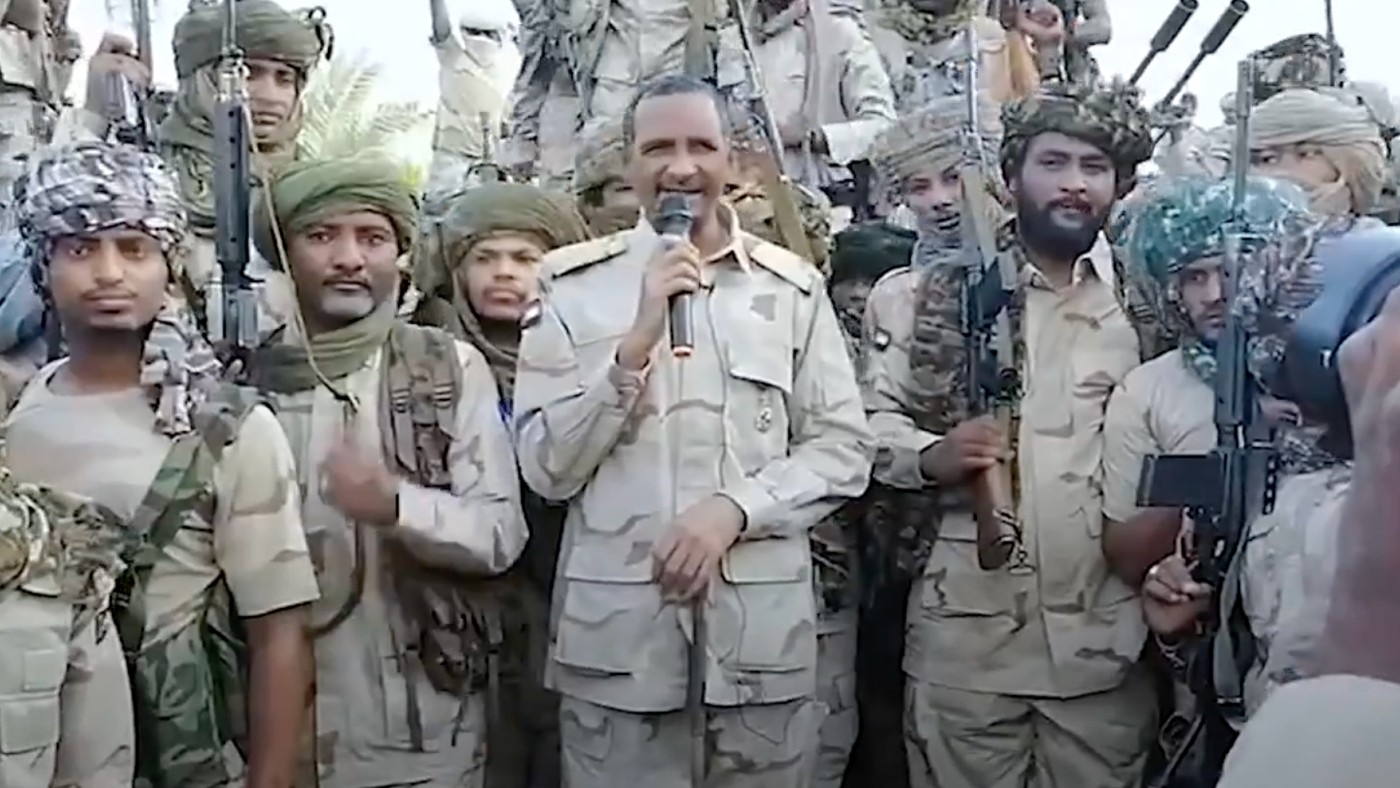
The commander of Sudan's Rapid Support Forces (RSF), Mohamed Hamdan Dagalo, has appeared in public for the first time in over two months, following rumours that he had been seriously wounded.
In video footage posted on the RSF's social media channels, Dagalo, who is better known as Hemeti, appears smiling in the front seat of a technical vehicle. Triumphant music plays in the background, and around him his fighters raise their weapons in the air.
The video then cuts to Hemeti dresssed in military fatigues, a microphone in his hands as he addresses his men, who are wearing headdresses and holding their guns.
"First of all, we apologise to all the Sudanese people, men and women, young and old, for this disastrous situation enforced on us by the associates of the deep state and the putschists," he says, referring to army commander General Abdel Fattah al-Burhan and Islamist officials close to the armed forces.
Speaking to MEE, officials in the RSF have accused the Sudanese Armed Forces (SAF) of being in the grip of radical Islamists and senior figures who worked in the government of Omar al-Bashir, the autocrat who ruled Sudan for three decades and was removed from power following an uprising in 2019.
New MEE newsletter: Jerusalem Dispatch
Sign up to get the latest insights and analysis on Israel-Palestine, alongside Turkey Unpacked and other MEE newsletters
"We have many messages to our brothers in the Sudanese Armed Forces (SAF)," Hemeti says in the video. "If you want a quick solution to this situation you have to change this aggressive leadership... if you do, we will reach a solution in 72 hours."
The paramilitary commander goes on to address Yasser Alatta, the third-highest-ranking commander in the Sudanese army, who in a bizarre outburst recently dared Kenyan President William Ruto to bring Kenyan soldiers onto Sudanese soil.
"You know us well and you know what we are saying are not empty words," Hemeti says, addressing Alatta. "It is serious talk. So you have to leave behind these value-less speeches."
The RSF, according to Hemeti, are "peace lovers" who do not want to see war in Sudan. "We say we have nothing to do with the outlaws, we have no thieves or criminals among our forces."
Middle East Eye recently reported on the "Dagalo" markets, named after Hemeti, that have sprung up across Sudan selling cheap goods, often looted by the RSF.
Having not been seen in public since an appearance outside the Republican Palace in Khartoum in late April, just a couple of weeks after the ongoing war in Sudan began on 15 April, the paramilitary leader's whereabouts have been the source of great debate and intrigue.
Hemeti has communicated with the wider world in the form of voice notes, published sporadically on RSF channels over the course of the war.
At the beginning of July, Yaslam Altayeb, a 49-year-old Sudanese businessman who was captured and held hostage by the RSF for 15 days, told Middle East Eye that a medic working at Khartoum's Sharq al-Nil hospital had said to him that the RSF had closed off the upper floors of the hospital, and that the capital's best surgeons and doctors were taken there for urgent work on a senior leader.
"Later, one of the officers told me, yes, it was Hemeti," Altayeb said. Multiple other military sources inside and outside Sudan told MEE that the paramilitary commander was wounded early on in the war.
Earlier this week, a human rights recorder from El-Geneina in West Darfur told Middle East Eye that he had witnessed fighters from the RSF and allied Arab militias shooting civilians dead in the streets. He said that the paramilitary was primarily targeting members of the non-Arab Masalit community.
The 29-year-old sent pictures of dead bodies littering the streets of the city in western Sudan.
The war between the Sudanese Armed Forces (SAF) and the RSF is now in its fourth month. According to the UN, more than 3.5 million people have been displaced both internally and across the border into neighbouring countries since 15 April.
More than 80 percent of Sudan's hospitals are out of use and humanitarian partners have only received 23.5 percent of the funding they require this year.
Middle East Eye delivers independent and unrivalled coverage and analysis of the Middle East, North Africa and beyond. To learn more about republishing this content and the associated fees, please fill out this form. More about MEE can be found here.


